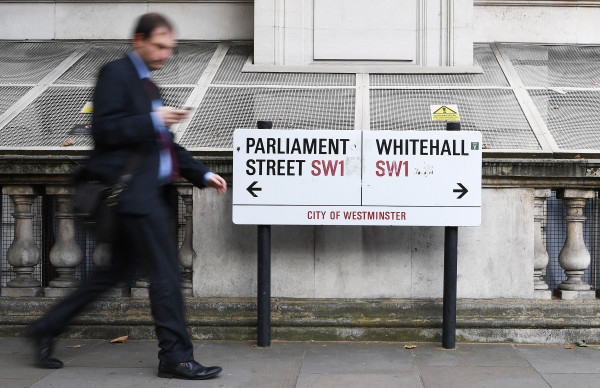

The government has refused to commit to increasing minimum automatic enrolment contributions despite acknowledging that the current statutory contribution of 8 per cent is “unlikely to give all individuals the retirement to which they aspire”.
The government was responding to recommendations made last year by the Work and Pensions committee which said the government should outline whether it felt an increase in minimum contributions was possible.
At the time, the committee said that if an increase was not possible then the government should explain how it intends to address the challenge of many people being on course for inadequate retirement incomes.
The government's response to the committee’s recommendations was published today (January 23) alongside responses from the Financial Conduct Authority and the Money and Pensions Service.
In it, the government refused to commit to a date for the new automatic enrolment rules and instead said it is committed to its current timeline and will bring forward legislation “at a suitable opportunity and when parliamentary time allows”.
According to the Work and Pensions committee, 10 years on from the introduction of automatic enrolment, 60 per cent of people are still at risk of missing out on an adequate retirement, with minimum contributions to pensions too low.
In its response to the committee’s recommendations on changing the system, the government said it is focused on economic stability and growth, which “supports higher wage levels and opportunity for increased retirement saving in future”.
However it said recognising the current economic context it has been clear that the next steps for automatic enrolment will be the implementation of the 2017 review measures in the middle of this decade.
The government has said “before looking at further changes” its priority remains supporting and enabling low to medium earners to save more for their retirement.
Commenting on the government’s response, Work and Pensions committee chair, Stephen Timms said: “The government is tinkering around the edges and relying on nudging people towards engaging with pensions rather than tackling the problem of under saving head on. This approach, as we heard many times during our inquiry, is unlikely to be enough.
“The government accepts the warning that the current level of minimum auto enrolment contributions will likely lead to many missing out on a comfortable retirement.
"It now must get on with building a consensus on the need for change and draw up a plan for introducing higher minimum contributions to workplace pensions in the future.”
Commenting on the government’s response, David Brooks, head of policy at the independent pensions administrator Broadstone said the government should be honest with pension savers about how much they need to put aside for retirement.
“The failure to set out a timetable for increasing contributions risks a whole cohort of pension savers sleepwalking into retirement destitution under the impression they will be guaranteed a good standard of living,” Brooks said.
He continued: “While many employers and individuals will be feeling difficult financial pressures, it is vital that the government is honest about how much people need to be saving into their pension over the entirety of their accumulation journey.
“If the government isn’t going to be increasing minimum contribution levels in the near-term, at the very least we need a change of rhetoric to demonstrate the importance and urgency of building up adequate pension savings.”
Prompts and nudges
Elsewhere in its response, the government also said that it would not support the trial of a system by which members are automatically booked an appointment with Pension Wise, the state’s pension guidance service.
According to the government, since the introduction of its ‘stronger nudge’ policy to encourage more people to use the service, appointments have increased 20 per cent year on year.
As a result of this, it said it will consider all options for “signposting and nudging” individuals to appropriate guidance rather than trialling automatic appointments.
Turning to the committee’s recommendations to better support self-employed individuals, the government said it has no plans to make automatic enrolment deductions for self-employed people through tax returns.
This was in response to the committee’s recommendation that it consult on a proposal to increase the main rate of national insurance paid by self-employed individuals by 3 per cent, with the option to have the increase paid into a pension if the self-employed person also contributes 5 per cent.
Instead, the government said it would again rely on “prompts and nudges” to help self employed people manage their money.
It said: “Accountancy software, payment platforms and bank accounts, could have an impact when aligned with the opportunities presented by Making Tax Digital, through working with software providers to explore potential solutions.”
It noted that the Department for Work and Pensions is currently working with BASDA, the UK trade body for business software developers to explore these opportunities.
New pension body ‘not necessary’
Responding to the committee’s recommendation that a new office be set up tasked with gathering and reporting on policy initiatives related to retirement adequacy and the gender pension gap, the government said this was not necessary.
It noted that the remit of this already falls within that of the DWP which already provides evidence and analysis in this area.
Furthermore it said it also works closely with regulators and other government bodies to inform its evidence base on pensions, such as the FCA, the Pensions Regulator and HM Revenue and Customs.
jane.matthews@ft.com



